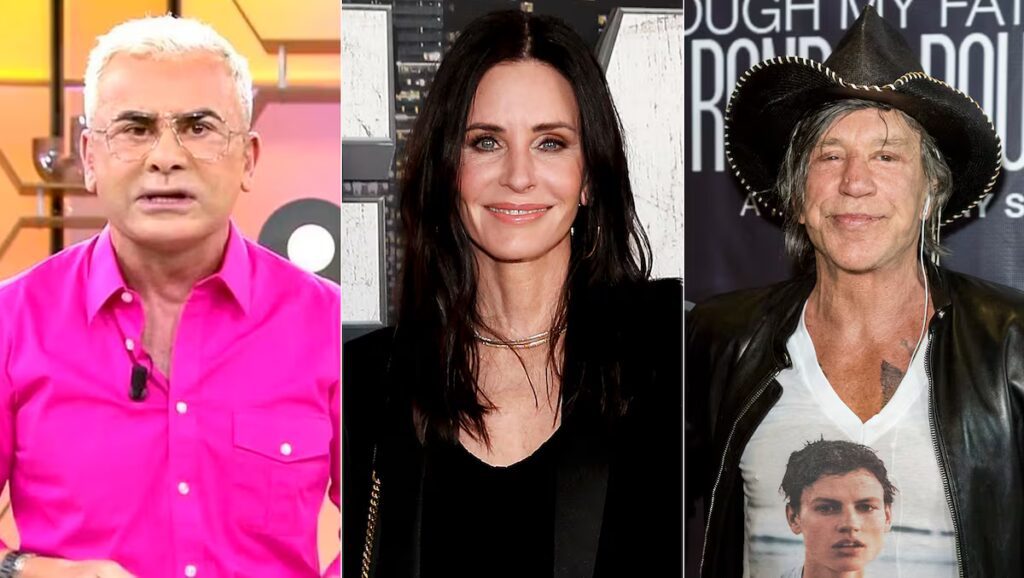In the acclaimed film All About My Mother, directed by Pedro Almodóvar, the character Agrado offers a poignant monologue about authenticity and beauty. She famously declares, “You're more authentic the more you resemble what you've dreamed of being,” encapsulating the modern obsession with cosmetic surgery.
Cosmetic surgery often contrasts with traditional medical procedures that address physical ailments. While surgery is designed to address health issues, cosmetic procedures cater to the desire for aesthetic enhancement, frequently driven by individuals seeking to fulfill personal ideals of beauty.
Jorge Javier Vázquez, a well-known Spanish television presenter, recently appeared on his show with a noticeably altered appearance. “Hello everyone, I'm Jorge Javier… even though it may not look like it,” he humorously noted, drawing attention to the cultural pressures surrounding appearance.
The quest for beauty and youth has existed throughout history, but current technological advancements have made cosmetic enhancements more accessible. In Spain, the prevalence of cosmetic surgeries has doubled over the past decade. Meanwhile, in the United States, where the tech industry often explores solutions to defy aging, this growth has been even more pronounced.
Despite the subjective nature of beauty, studies have attempted to quantify the effects of facial cosmetic surgeries. A report from the American Society of Plastic Surgeons utilized artificial intelligence to assess the perceived youthfulness of individuals post-surgery, revealing an average age reduction of 4.3 years. Contrarily, patients reported feeling as though they appeared almost seven years younger, highlighting a disconnect between self-perception and actual results.
Lead author James Bradley explained, “Patients may tend to overestimate how much younger they look after facelift surgery – possibly reflecting their emotional and financial investment.” Furthermore, while some observers noticed a reduction in age, increased youthfulness did not always correlate with enhanced attractiveness.
Historically, aging and mortality were accepted as unchangeable realities, often viewed through a lens of stoicism or religious belief. However, contemporary self-improvement ideologies promote relentless striving, replacing traditional notions with a belief in the power of will and technological solutions. Individuals are trained to identify and combat various risk factors associated with aging and mortality, leading to a mindset where prolonging life becomes paramount.
While exercise and nutrition have demonstrable benefits for health, evaluating the psychological impact of cosmetic procedures remains challenging. These interventions often influence self-image, yet human desires for an idealized self-image can be insatiable.
According to data from the Spanish Society of Plastic, Reconstructive and Aesthetic Surgery, 29.5% of cosmetic procedures are performed on individuals aged 18 to 29. Moreover, the average age for undergoing the first cosmetic intervention has decreased from 35 to just 20 years old in recent years.
Despite the growth of the cosmetic surgery industry, little is known about its long-term psychological effects. A recent review indicated that evaluations of psychosocial outcomes related to these procedures are limited, often involving small sample sizes and short follow-up durations. Some studies report short-term satisfaction with specific enhancements, yet results regarding broader body image satisfaction are mixed.
Even as research evolves to better understand the impact of cosmetic surgery on long-term well-being, the allure of the aesthetics business continues to thrive. This industry capitalizes on the aspiration to transform one's appearance, perpetuated by societal standards of beauty and influenced by the omnipresence of idealized images in media.
It is important to reflect on whether Agrado's empowering message might conceal a potential trap. The relentless pursuit of surgical enhancement can lead individuals into a cycle of repeated procedures, as time inevitably marches on. Authenticity might lie not in altering one's image but in embracing one's true self.











